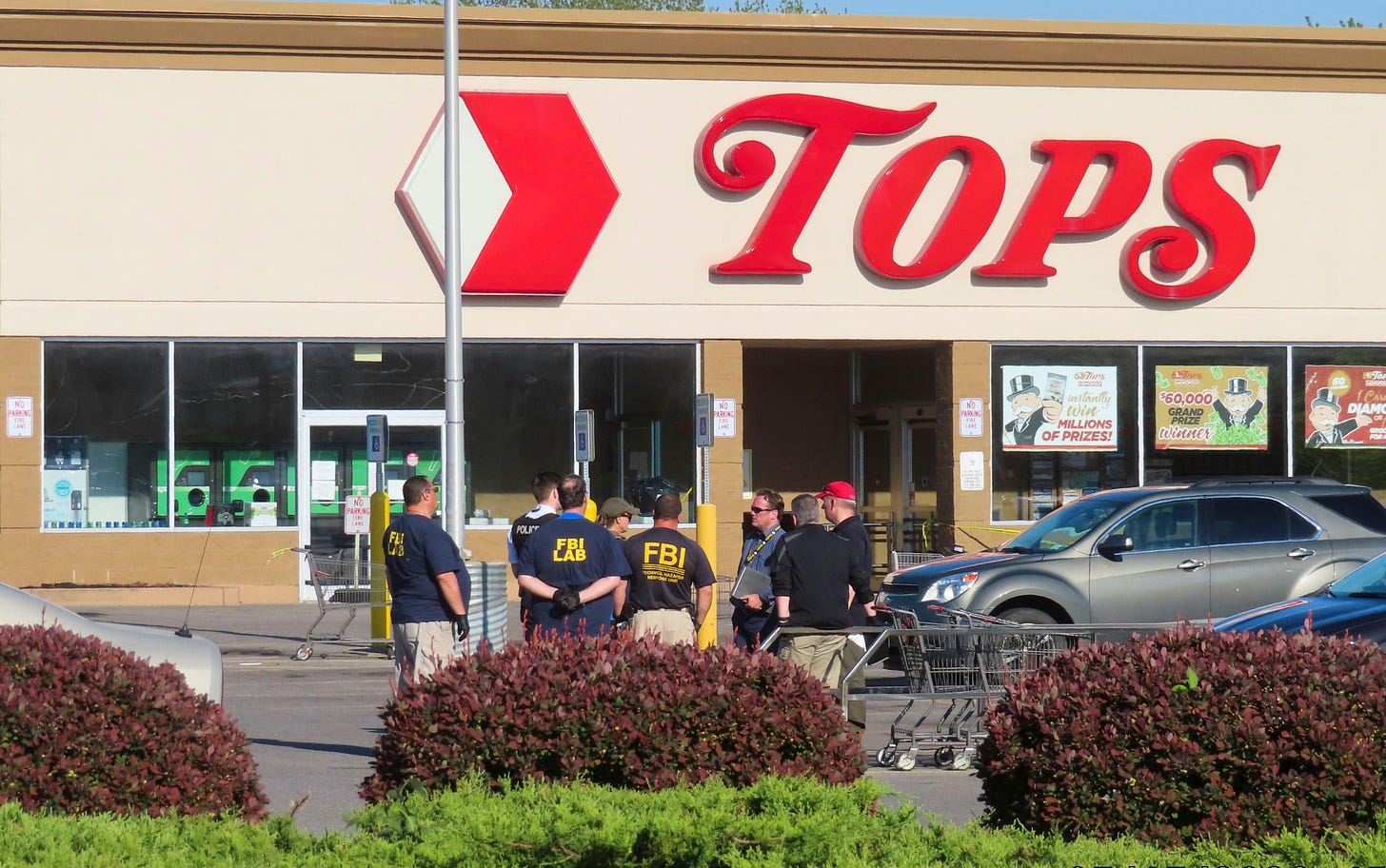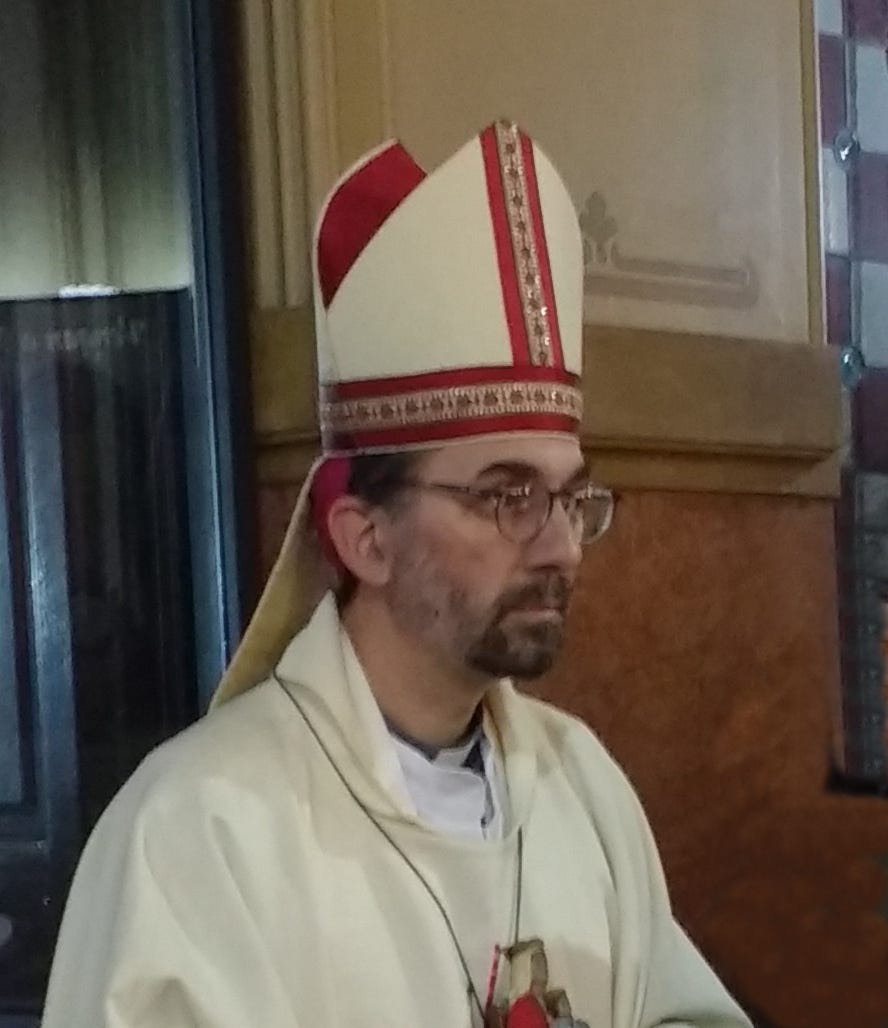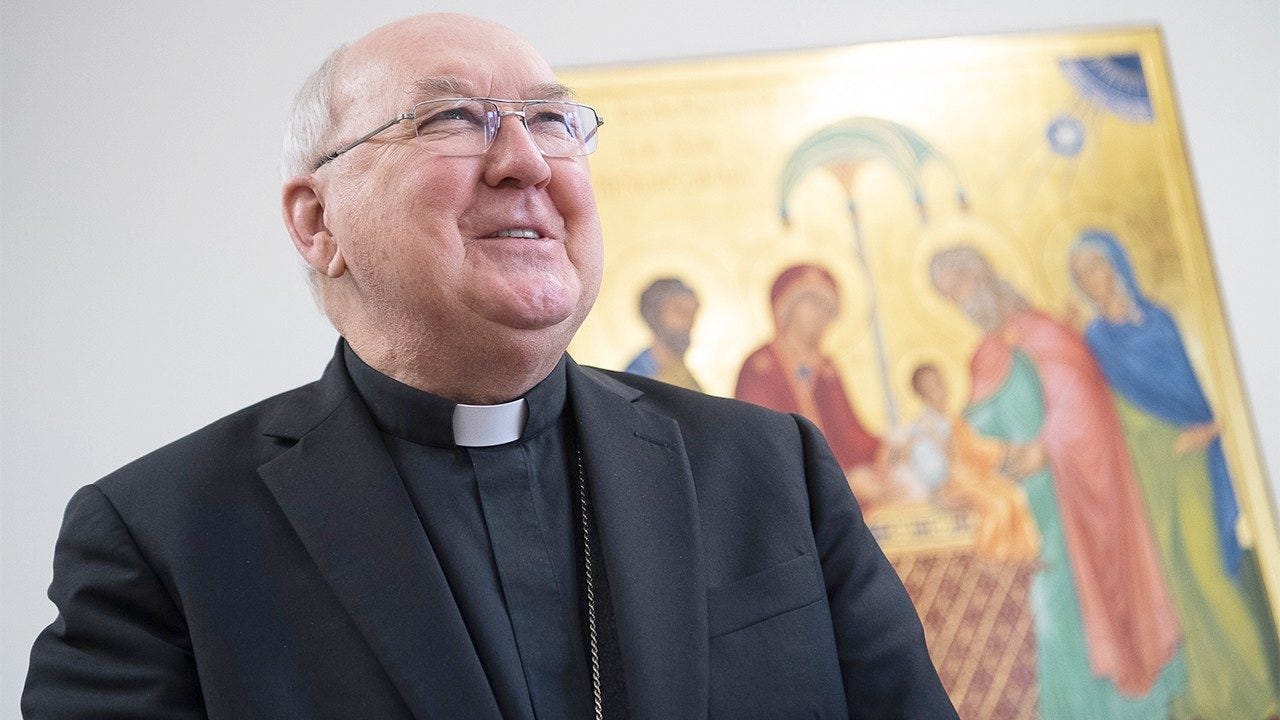Lobbyists for Catholic bishops across the U.S. told The Pillar Wednesday that working for effective policy solutions amid a wave of mass shootings isn’t easy, and that trying to address a complicated and often divisive set of policy issues involves both practicality and prophetic Christian witness.

The murder of 19 children at Robb Elementary School in Uvalde, Texas was the latest in a string of shootings this month, which also includes the racially-motivated murder of 10 black people in a Buffalo, New York grocery store, and an anti-Taiwanese attack at a California church that left one person dead and 8 injured.
The shootings have led to an outpouring of grief from victims’ families, and an at times unseemly partisan political debate about how to address the problem of gun violence and stop the pattern of mass casualty events.
The U.S. bishops have for years advocated for stronger gun control laws, while stressing that such policies are only part of the broad response needed to address societal violence and a culture of death.
Despite their advocacy, bishops and Catholic agencies are often accused of speaking with less conviction on gun violence, and on attendant issues like mental illness and racism, than on abortion and religious liberty. State Catholic conference leaders told The Pillar that while the Church’s policy engagement is necessarily more complex than on abortion, it is not lacking in urgency.
And some said that to address the endemic partisanship in conversations about guns, the Church is applying lessons from the abortion debate.
No simple answer
“The reason that the Church is often seen as less vocal on gun issues is that, unlike abortion for instance, there is not a consensus on the solution,” Jamie Morris, legislative counsel for the Missouri Catholic Conference, told The Pillar on Wednesday.
“While everyone can agree that something must be done, there can feel like there is a certain helplessness in crafting a solution.”
“The type of violence we have seen in recent weeks is a reflection of a culture that does not value life. But you cannot pass one specific piece of legislation to ‘fix’ gun violence, which again, is why I think the Church is viewed as less passionate about the issue,” Morris said.
Dennis Poust, executive director of the New York Catholic Conference, agreed.
Poust told The Pillar that addressing shootings like those in Texas and Buffalo requires acknowledging both the possibilities and limits offered by a policy response.
“Unfortunately there's no one simple answer to this problem that just seems to be getting worse and worse,” Poust said. “You can't legislate away, for example, racism, which was the motivation in Buffalo, you can't legislate away mental illness, or whatever proves to be at the root of this awful incident in Texas.”
“There is a crisis and, post COVID, it seems to be worse than ever. There's a mental health crisis in this country, I think particularly among younger people,” said Poust. “Right now in New York, we're still grappling, in the wake of Buffalo and now the Texas tragedy on top of that, with how to respond.”
But Poust emphasized that there are things that can be done about guns themselves — and that some policy approaches could gain broad support.
“I think it's incumbent on us to look deeper, past something as simplistic as being ‘pro Second Amendment’ or ‘anti Second Amendment.’ I think there are probably common sense things that people can support if there was good will between the parties to actually get things done.”
“That,” said Poust, “is where it all breaks down, and that is where we have to go to work. We are pro-life and I don't think it cuts it to just stand idly by and say ‘there's nothing we can do about it.’ We just have to try, and it seems like perhaps lawmakers around the country haven't tried hard enough to do some of the things that the bulk of the population would support.”
Poust said there may be lessons to draw about gun lobbying from the Church’s advocacy on abortion.
“If you look at the surface level numbers of people who consider themselves pro-choice or pro-life, more people consider themselves ‘pro-choice,’ but when you dig deeper, you see most people actually support pretty restrictive laws against abortion, including those who identify as pro-choice,” he said.
In the same way, “there is widespread support for some kinds of gun restrictions, just like we’ve talked about with abortion,” he added.
Morris told The Pillar that working for practical solutions requires recognizing that the Church has to navigate a highly politicized public debate, one which often colors people’s perceptions of what the Church teaches and wants to accomplish.
“People tend to view the Church's priorities based on their political leanings,” Morris said, further clouding Catholic calls for reform. “Those on one side think all the Church does is oppose abortion. Those on the other side wonder why the Church isn't focusing on abortion instead of getting involved in gun issues.”
Jason Adkins, executive director of the Minnesota Catholic Conference, agreed. He also told The Pillar that the mass shootings of the past weeks are indicative of a deeply broken American society.
The Buffalo and Texas shootings, Adkins said, are “troubling on a deeper level because of the youth of the perpetrators.”
“These are symptoms of a society that is sick at its core, and which too often relies on violence to both solve conflict and to unleash the existential crises of the soul,” said Adkins. “It is a primal scream. Poison in many forms continues to pour into the human ecology, warping the minds and hearts of our people.”
Common sense
Legislators, politicians, bishops, and commentators often cite broad public support for “common sense” gun control laws. But what fits the definition of “common sense” is often fiercely debated nationally, and can shift from state to state.
Still, bishops’ lobbyists told The Pillar that some Church-backed policies on gun control do seem to enjoy broad public favor, even if political will to bring them about usually seems to be lacking.
“When it comes to gun violence,” Adkins said, “we are not powerless, and should consider appropriate gun safety measures that, even if untested, may save lives and protect a person’s right to be secure in his or her person.”
People are “prone to filter every gun violence policy proposal, and respond to every tragedy, with a zero-sum ideological debate about guns,” instead of “part of a consistent ethic of life that rejects a throwaway culture,” Adkins added. That makes reform efforts difficult.
While legislative efforts are needed, he said, an element of pragmatism is also important, with a realistic sense of where legislative efforts might begin.
Proposing the total elimination of gun ownership in Minnesota, he said, would be a “doomed campaign.” But working for school safety is a plausible path forward, he explained.
“In Minnesota, there is currently no political will by either party to restrict access to guns, even through expanded background checks or red flag laws, so why not start where we can establish common ground for the common good?”
“School shootings are particularly shocking,” Adkins said, “but still there is a bipartisan lack of political will to put restrictions on gun ownership, such as banning certain types of guns.
“As we work to foster a culture of peace and transform hearts and minds, why not focus as a start on comprehensive school safety legislation that provides funding for, among other things, school security personnel, building security enhancements, and mental health initiatives for students?”
Morris told The Pillar that Missouri’s bishops has had push back in recent years against legislation that would relax gun regulations, including a 2016 bill that would have allowed citizens to carry concealed weapons without a permit, and efforts to remove churches and schools from the list of places where carrying a gun requires permission from the institution — in those cases, from the pastor or school administrator.
While the bishops recognize that citizens have the right to self-defense in life-threatening circumstances, Morris said, “they are concerned with the narrative that suggests we are somehow safer as individuals and as a society if everyone is always and everywhere armed.”
Adkins agreed, saying that using the language of “rights come with responsibilities” might sound pragmatic but it is an important part of building a workable consensus.
“That’s how gun violence advocacy more clearly becomes a pro-life issue and is better accepted as such by a larger number of Catholics,” he said.
“We should work to ensure responsible gun ownership — Permitless concealed-carry, for example, seems like a bad idea.”
In New York, Poust said, the state has already passed gun control legislation with the support of the state’s bishops, but problems still exist.
“For example,” he said, “we supported the New York Safe Act, which was Governor Cuomo's response to the Sandy Hook massacre. It was an omnibus gun control package that banned certain types of weapons, defined assault weapons, and included a red flag law, allowing the court to order the removal of guns from a person deemed to be a risk to themselves or other, which sadly somehow didn't come into play with the Buffalo shooter when it should have.”
The May 14 mass shooting in Buffalo, Poust said, highlighted that work in the state still needs to be done, if gun control laws are to be practically implemented after they’re passed.
“This person in Buffalo had made at least some sort of threats against his high school a year ago and was sent for a mental health evaluation, yet was able to walk into a New York gun dealer and legally purchase an AR-15. It seems to us like that shouldn't be the case, and there ought to be a way to have prevented him from at least buying a legal weapon.”
“You can't always stop the purchase of illegal weapons,” Poust said, “but certainly you can make it more difficult, especially when you're talking about a young man. And what we're seeing is a lot of these crimes are committed by young men, teenagers; most school shootings are done by teenagers — this Buffalo shooter is also 18 years old.”
Poust added that New York governor Kathy Hochul had recently proposed raising the age at which someone can purchase a rifle from 18 to 21 years old.
“That's the kind of a common sense gun restriction that I think the bishops would likely be supportive of, as well as increased availability of mental health services — which we are always in favor of.”
A spiritual problem, too
Part of taking an holistic approach to ending a culture of violence, Adkins said, has to be spiritual, and he underlined the need for evangelization, as well as lobby efforts:
“Public policy can play only a limited role in alleviating the existential crises, though it can work proactively to promote public safety and morals, and limit the damage done by things like drugs, weapons, pornography, and racism,” he said. “I am of the view that there can be no brotherhood of man without acknowledging the fatherhood of God, and that there will only be peace when we recognize the kingship of Christ.”
“The evangelical imperative is paramount to addressing these social problems—as uncomfortable as that is for many Catholics to acknowledge.”
“Some may ask, ‘where is the Church’s prophetic voice in all this prudence, politicking, and pragmatism?’” Adkins noted. “The problem of widespread gun ownership is a lack of social trust, fear of others, the reality of exploding crime, and the possibility that the police may not show up to protect you or your family. Those are real issues that need to be acknowledged while we work incrementally to save lives with prudent legislation.”
“But again,” said Adkins, “the Church is called to proclaim the peace of Christ in the reign of Christ. There are no political solutions to fundamentally moral problems. There are only religious solutions to those problems. That must be its core message in this dark time.”



